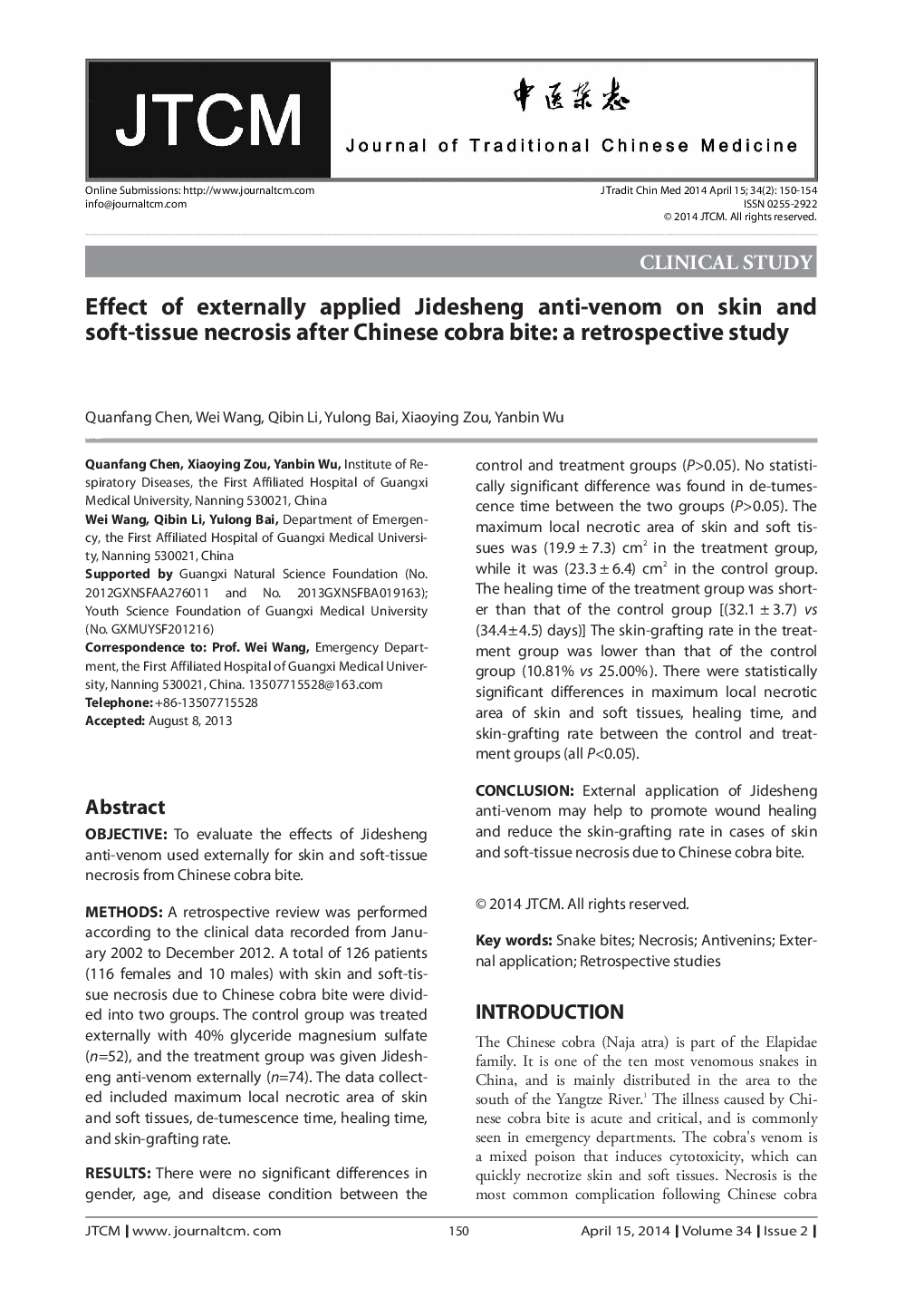| Article ID | Journal | Published Year | Pages | File Type |
|---|---|---|---|---|
| 4201160 | Journal of Traditional Chinese Medicine | 2014 | 5 Pages |
ObjectiveTo evaluate the effects of Jidesheng anti-venom used externally for skin and soft-tissue necrosis from Chinese cobra bite.MethodsA retrospective review was performed according to the clinical data recorded from January 2002 to December 2012. A total of 126 patients (116 females and 10 males) with skin and soft-tissue necrosis due to Chinese cobra bite were divided into two groups. The control group was treated externally with 40% glyceride magnesium sulfate (n=52), and the treatment group was given Jidesheng anti-venom externally (n=74). The data collected included maximum local necrotic area of skin and soft tissues, de-tumescence time, healing time, and skin-grafting rate.ResultsThere were no significant differences in gender, age, and disease condition between the control and treatment groups (P>0.05). No statistically significant difference was found in de-tumescence time between the two groups (P>0.05). The maximum local necrotic area of skin and soft tissues was (19.9 ± 7.3) cm2 in the treatment group, while it was (23.3 ± 6.4) cm2 in the control group. The healing time of the treatment group was shorter than that of the control group [(32.1 ± 3.7) vs (34.4±4.5) days)] The skin-grafting rate in the treatment group was lower than that of the control group (10.81% vs 25.00%). There were statistically significant differences in maximum local necrotic area of skin and soft tissues, healing time, and skin-grafting rate between the control and treatment groups (all P<0.05).ConclusionExternal application of Jidesheng anti-venom may help to promote wound healing and reduce the skin-grafting rate in cases of skin and soft-tissue necrosis due to Chinese cobra bite.
